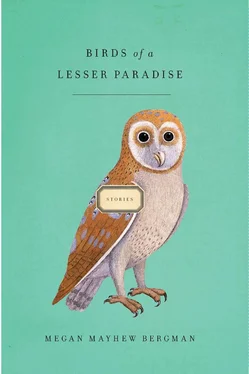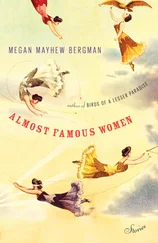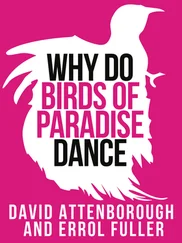Dad fingered the raised bump of flesh on his chest where his heart had been installed.
Hurts today, he said.
Rest, I said, and remember to stay out of the kitchen. Too much exposure to machines is bad for your heart.
This damn thing is invincible, Dad said, pounding it with his fist.
Dad had once requested that we help him commit suicide on his hundredth birthday. Link can figure out how to stop my heart, Dad said. Because we felt sure he’d never make it that long, we indulged him. Of course, Link said. I could wrap a lump of raw magnets around your chest, or sneak you into the hospital and jam your heart with radiation. Excellent, Dad said.
I’m so tired of being alive, Dad had begun telling me some nights, his voice a whisper of its former strength. His back hurt; he stooped like a shrimp when he walked. He wore soft caps over his melanoma-ridden bald head and refused new clothes, intent on wearing old fishing T-shirts and a reliable pair of baggy Levis that chafed his sensitive legs. His toenails were yellow, chalky, and coiled, his feet swollen and calloused. I hated to touch his feet; they were the saddest thing about him and, next to his mind, heart, and lungs, the things he needed most. He still walked on his own — though no more than two blocks — and until recently had fished once a day, standing up from his frayed lounge chair to reel in anything that tugged his line — a small tarpon, a fetid mound of seafaring trash.
I gingerly removed Dad’s fleece-lined moccasins so his feet could breathe. He ran them across the carpet like a child.
I want to get out later, he said.
I want to take Susan fishing. Dinner’s at four, I said. I’ll call the center and Susan’s son to see if a fishing date is possible beforehand.
Are my clothes clean? he asked. Do I have the heart of a pig? I saw a special this morning about putting pig hearts in men.
I’ll be on the roof, I said, patting his hand. We’re gonna use your design for the rain barrels. We’re taking precautions — Link wants to maintain our own water supply. When did you write the book?
Nineteen ninety-eight, he said, though I worked on chapters in the eighties.
Correct, I said.
I walked outside and grabbed the extension ladder — already hot to the touch — which Link had propped against the side of the house. I found him on the roof, shucking off sheets of historic Spanish tile in the morning sun. He hunched shirtless over the tile, cutting fasteners with a hacksaw. He was one of the few people I knew who still managed to work in the sun; most laborers worked by night under artificial light. Link’s skin was the color of eggplant, except for his butt and midsection, which, when uncovered, appeared white and phosphorescent in contrast to his deeply tanned legs, arms, and back.
Cover up, I said. You’ll burn.
He stood up, sweat sliding down his body in sheets. Just another half hour and I’ll go in for a break, he said. Almost done removing this patch of tile.
Using a design from Dad’s Living Rogue manual, Link was connecting our barrels to a gray water system with which we’d trap the Key West rains. He held plastic tubing up for inspection.
Gray water might be passé, Link said, duct taping the tubing to a black plastic barrel, but it’s genius.
Is that why we can’t understand it? I said, leafing through pages of numbered diagrams.
Living Rogue was an old book that had been handed down to me like a silver tea set. Link revered every word. My father had written Living Rogue in 1999 when he thought the millennium would bring Chinese rule, a barter economy, and rationed power supplies — none of which had happened. Regardless, I grew up knowing how to fish for sustenance, maintain potable water, and commit a painless suicide in the face of nuclear warfare. Link, whom I’d met in high school, liked to say that I was the only cheerleader who knew how to fire an Uzi and field dress a deer — fictional ideas that I swear turned him on.
When I was younger, I suspected that Dad had wanted his doomsday predictions to come true. Maybe he thought sociopolitical turmoil would increase his relevance to society; maybe he wanted to hang on to the physical world he understood. He’d always pictured himself a sort of blue-collar genius, but he wasn’t, and I think deep down he knew it as much as anyone else. Now Dad lorded the past over us with nonlinear rants and lauded the superiority of simpler times, though I’m not sure he ever enjoyed living through them. But when he was with Susan, he smiled easily and his face softened in a way I’d never seen.
I worry about the structural soundness of this design, Link said, thumping the tubing.
If you have questions, I said, I’m sure Dad would love to hold forth on water collection and home wind power.
Your dad was high on painkillers when he wrote that chapter, Link said. He told me so. It’s a Percocet-fueled manifesto.
I threw up my hands. Your time to waste, I said. I’m sure there are better methods now.
Link and I had been sleeping together on and off for twenty years. We were partners, not spouses. Friends one year, lovers the next two. No merged bank accounts, no children, no rules, no problems. Dad had raised me to be independent.
Dad wants to go fishing with Susan, I said.
She’s hot stuff, he said, for an eighty-year-old.
Stop teasing, I said. You know she has a crush on you.
Susan always lit up when Link and I came to fetch Dad from the date. She referred to Link as “the handsome son” and reached out to lovingly pat his hand and kiss him on the cheek when it was time to go. I found her flirtations harmless and flattering.
Would you be willing to take them fishing if the center agrees to it? I asked.
Sure, Link said. He went back to work, looking at the book, then the barrels.
We had a great view of the ocean from Dad’s roof. I looked out at the gray expanse of water. It smelled different this year, like warm vegetable soup, or leftovers forgotten in the trunk of the car. The sea wasn’t stagnant — the tide was negligible but present, and waves broke on the dead reef miles out, sending timid ripples to lap against the rocky shore of the island. But experts said little to nothing but bacteria could survive in the ocean now; the water was warm and nearly oxygen-depleted. Anoxic, they called it. Two weeks after the big die-off, talking heads were still trying to assign blame, but I had stopped listening. Anyone with a brain knew it was everyone and everything, inevitable and awful, the beginning of the ugly end.
Hold this for me, Link said, handing me the torch he was using to solder the tubes.
His resolute industriousness was something to love and hate about Link. He had an affinity for projects. In a town of burned-out drunks, he was a doer, a prolific odd-jobber. Link was animated but hard to anger and had a sense of humor about everything. He’d once laughed at his own dislocated shoulder during a flag football match. But even he wasn’t taking the dying ocean well. I found him teary-eyed on the beach after the die-off. I think I’m ashamed to be human, he’d said, looking out at the water.
Thanks to Dad, I’ve lived my whole life waiting for apocalyptic events, environmental tragedies of epic proportions. The sun could explode, he’d say, and the world would still be looking at geriatric Madonna in a leotard. But now that a catastrophic event was happening Dad was oblivious, and I felt we’d irrevocably tipped our fortunes in the wrong direction, that my bones would, in millions of years, be like those of a velociraptor or trilobite. Soon, I told Link, we’ll be fossils, ripe for misinterpretation. I was sure some well-intentioned extraterrestrial would re-create my body, a hypothetical figure complete with unflattering body hair, and pose me participating in a drum circle on a fake beach in an oxygenated museum.
Читать дальше












